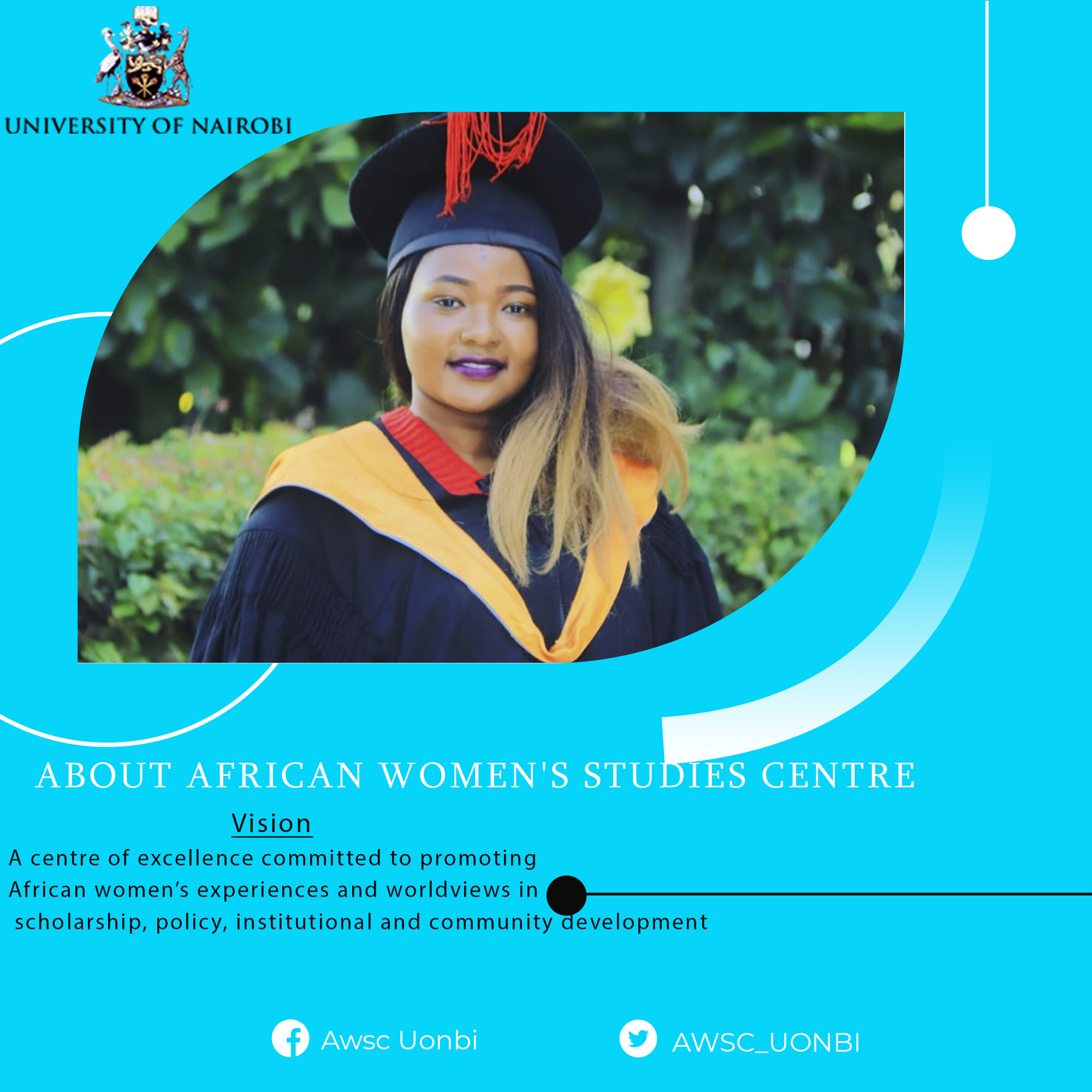
HISTORICAL BACK GROUND
The African Women's Studies Centre is informed by the recognition that the experiences of African women in almost all spheres of life have been invisible. These experiences have not been part of mainstream knowledge development and often they have not been a source of public and legitimate knowledge even about themselves. In other words, African women have often not spoken for themselves, neither have their experiences been utilized to shape, order and name the world in which we live.
However, we recognize that gender relations are contextual and therefore African women’s experiences, like other experiences, are unique. These experiences remain outside the debates in our academic institutions and are often not used to inform the policy makers and other key leaders in our region. Scholarship on women has based its arguments mainly on experiences of women in the West, while African Women’s experiences remain invisible, even in Africa.
Betty Friedan notes:
“All human beings have a biased and limited view of the world: biased in that it begins with self and limited in that it is restrained by experience. This means that there are many ways of seeing the world…………..”
African women’s view of the world is one of those ways, a perspective that needs to be made visible and integrated in our definition of how we see the world. African women’s perspective should not remain invisible and outside mainstream knowledge of our institutions. To bring the contextual knowledge to visibility we need to document the experiences of African women, their struggles, and their contribution in all spheres of development in Kenya and other parts of Africa. Women’s groups and organisations in our region have organized themselves to deal with their day to day struggles. They have created their own structures, generated their own knowledge and developed governance structures that remain outside the mainstream knowledge and Institutional development. These experiences and other innovations need to find their way into academic and policy debates in our national and regional institutions as well as in academic institutes and other forums.
Prof. Wanjiku Mukabi Kabira was acutely aware that the experiences of African women in almost all spheres of life were invisible, did not form apart of mainstream knowledge development and often they were not used as a source of public and legitimate knowledge. She had a dream, a dream that one day African women will have the opportunity to speak for themselves, their experiences would be utilized to shape, order and name the world in which they live. That dream became a concept paper which she wrote in order to persuade the leadership and the community of the University of Nairobi that this University should lead the way in establishing a Centre that will promote the experiences and wisdom of the African woman. The African Women’s Studies Centre originated from there.
